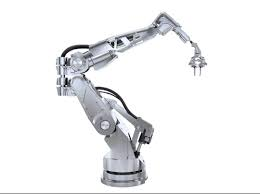The Future of Hydraulics
Hydraulics has played a significant role in driving the economy in recent years. Moreover, its technology has been advancing and introducing innovations to the market. It will continue to play an essential role in the future. However, the industry will need to adapt to new technologies and challenges. These are a few significant trends that will likely shape the hydraulics sector over the next few years.
There will be increasing competition from electric vehicles. These vehicles offer high reliability and efficiency, but they will only be cost-effective several years from now. This will put a damper on the hydraulics market. In addition, hydraulics may need to develop more energy-efficient solutions to keep up.
Increasingly, hydraulics and electronics will work together to provide a more efficient solution. Innovative hydraulic components and a digital controller are a few examples of this trend. The new technology is also an excellent way to improve safety. Using innovative technology can help prevent accidents and even predict when they will happen.
Another area where hydraulics will see advancements is its ability to integrate with the Internet of Things. This will allow manufacturers to incorporate intelligent sensors that can be used to optimize processes. Also, intelligent control systems can predict when a component needs replacement, reducing downtime and costs. For information about using a Hydraulic Power Unit, go to Hydra Products, suppliers of Hydraulic Power Unit products.
Manufacturers will continue to find ways to make their designs more compact and use smaller motors to reduce overall power consumption. One of the latest advancements in 3D printing is to print custom components, and this has already proven helpful in the production of servo valves.
Other trends include improvements in safety, efficiency, and environmental compatibility. Hydraulics and pneumatics will find applications in automobile assembly units, machine tools, and process industries. A new, energy-efficient drive system will be especially beneficial in pressure supply stations.
Hydraulics will also need to address issues related to green technology. For example, environmentally friendly fluids will likely increase as the demand for clean air increases. Environmental regulations will become increasingly stringent. Despite these challenges, the industry is well-positioned to capitalize on the trend and create new products and technologies to meet these demands.
Ultimately, the future of hydraulics will be one of efficiency, innovation, and technology. By incorporating the most innovative solutions, the industry can improve productivity, maintain equipment, and simplify maintenance.









